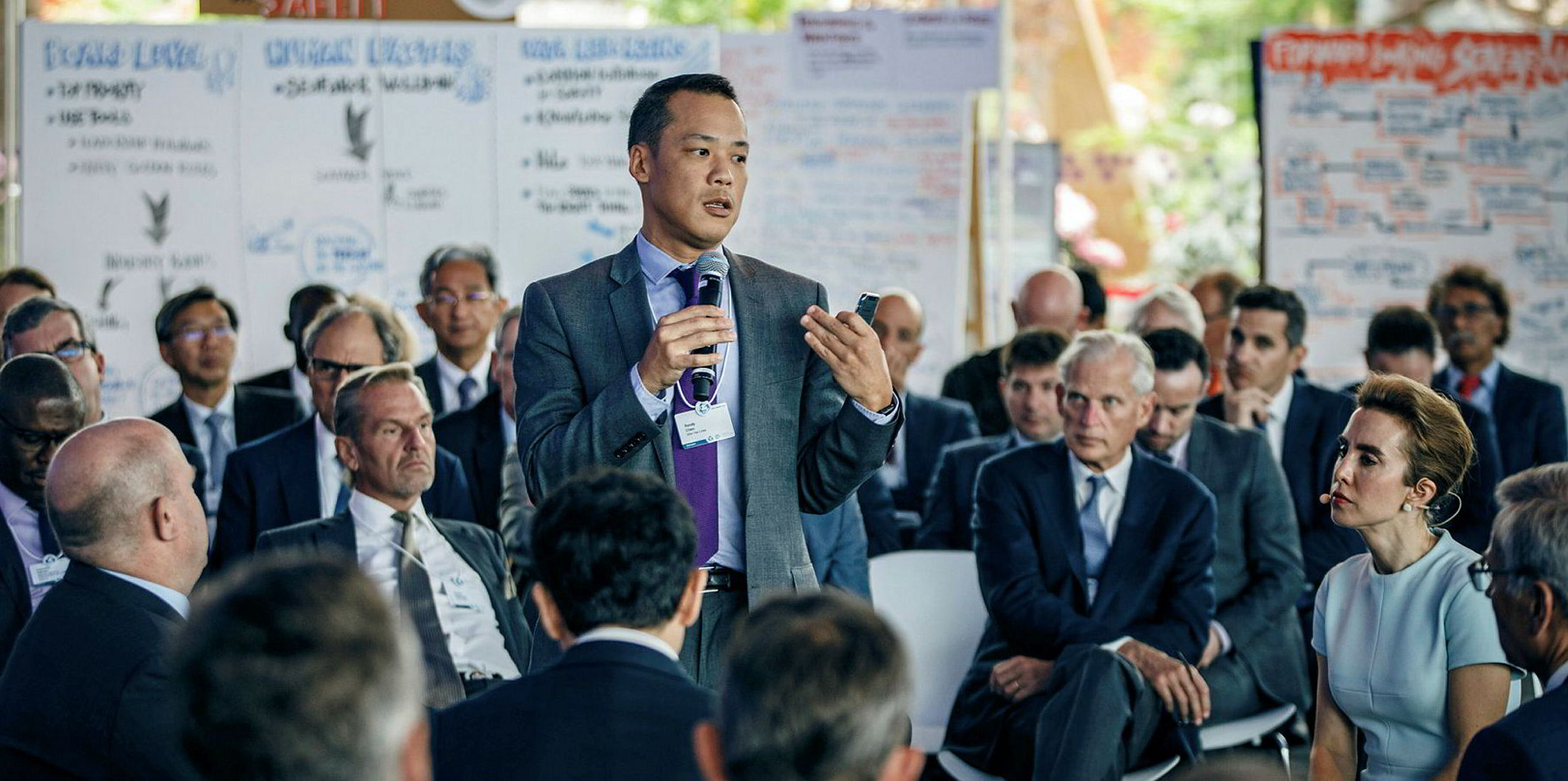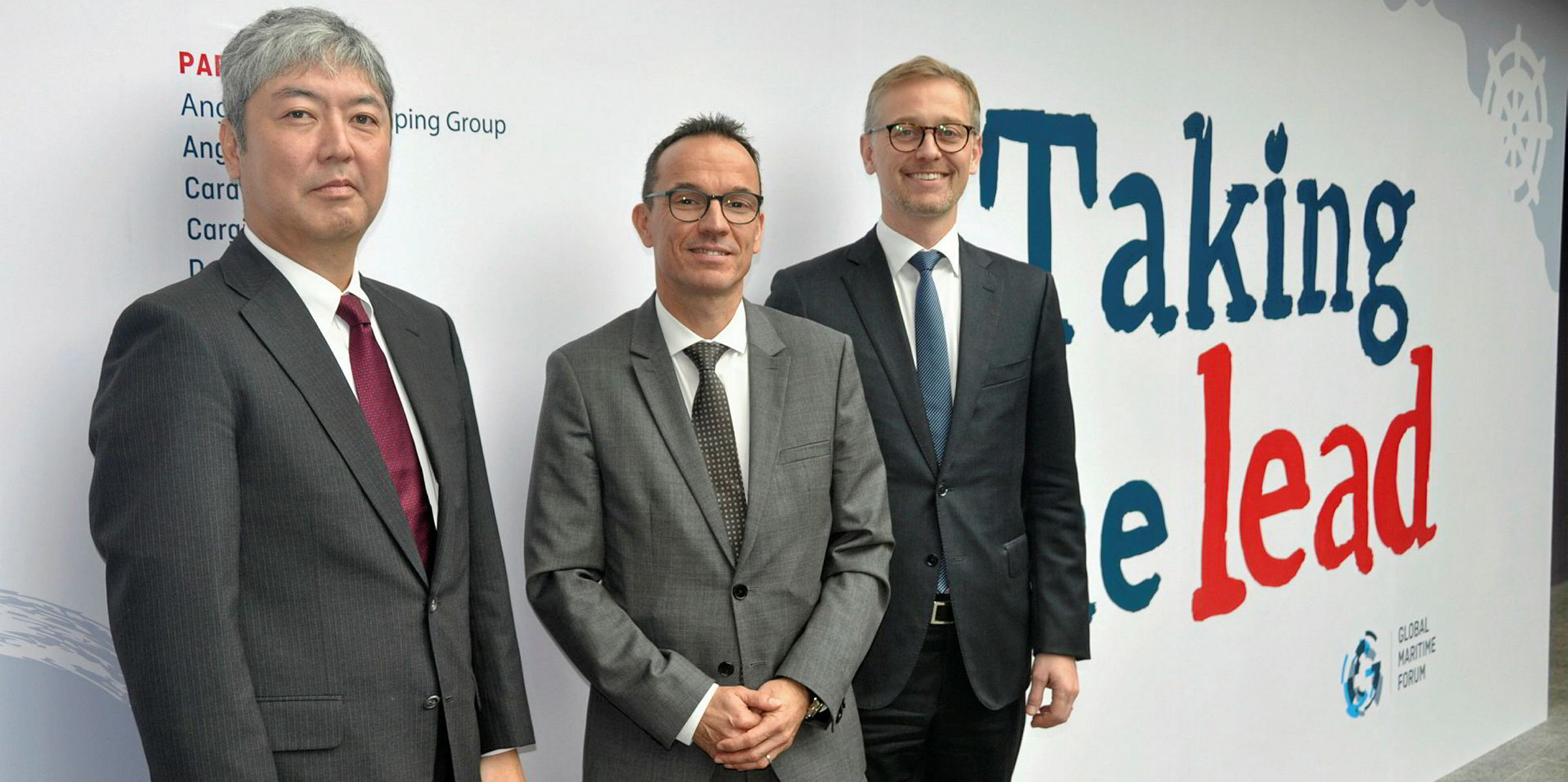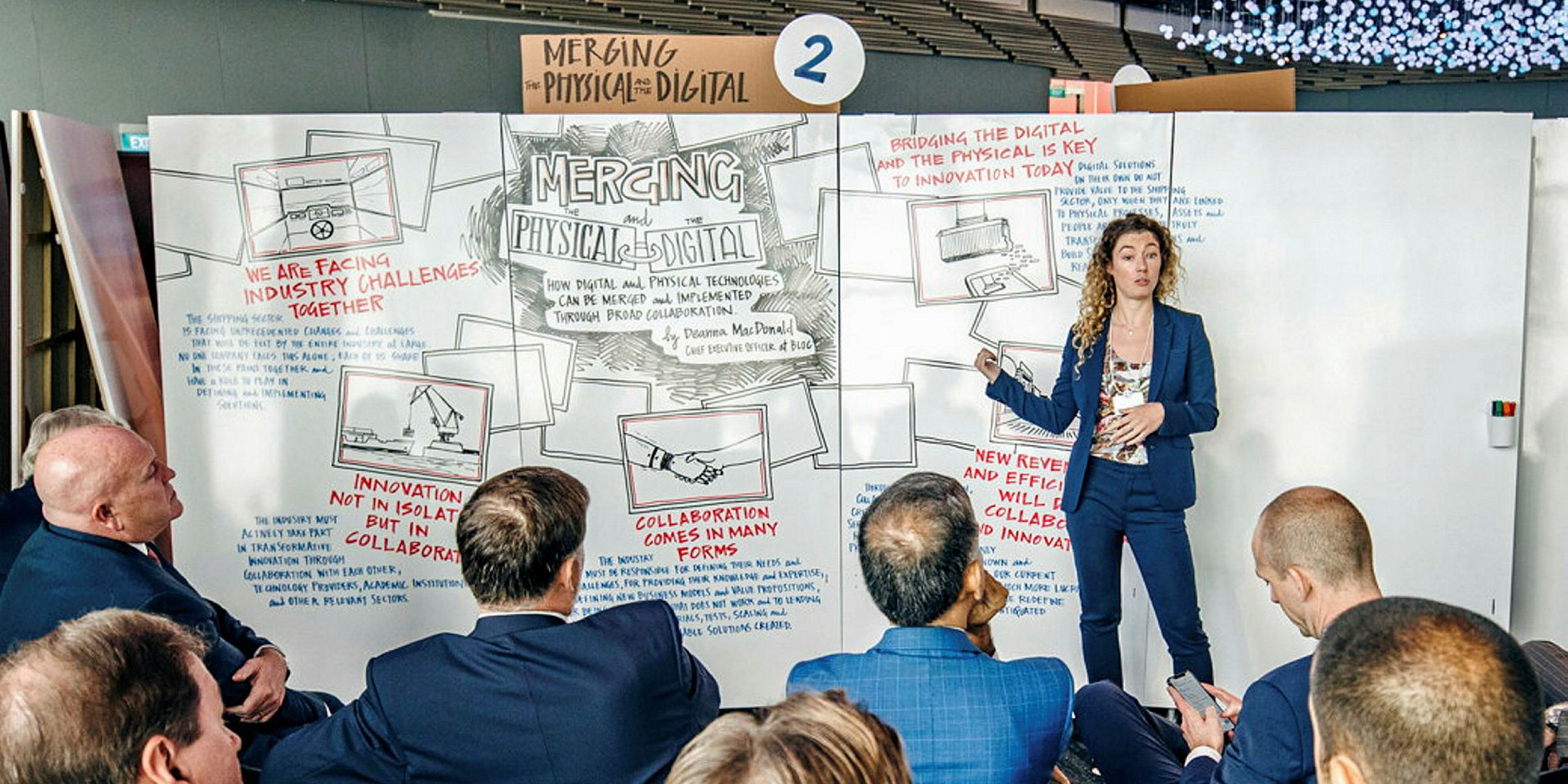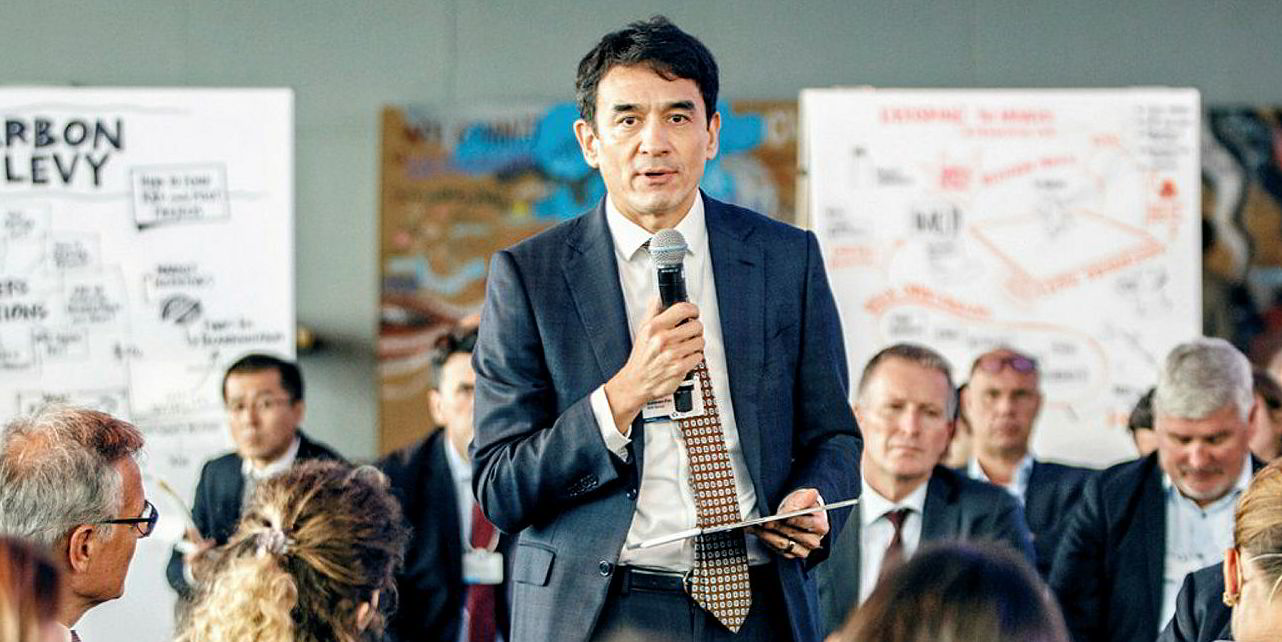Last week’s Global Maritime Forum annual meeting in Singapore may signal a turning point in the shipping industry’s approach to the greatest challenge it faces in the decades ahead.
Although the forum is little more than a self-selected "coalition of the willing" senior figures from across the industry with no formal status, there was a clear consensus that now is the time to support a carbon levy to help drive decarbonisation.
Prominent shipowners, charterers and financiers all voiced support for a levy — or carbon tax — which was drawn up by one of the forum’s working groups with the help of graphic artists.
Constructive engagement with a possible new tax on shipping also illustrates the fundamental adjustment underway in shipping’s relationship with wider society.
Carbon tax
Support for a carbon tax, verging on enthusiasm from some, shows the forum has added a new and potent voice to the debate over the organisation and regulation of the industry.
It is in sharp contrast to the traditional approach of the many interwoven heritage shipowner associations and shipping organisations that have so often been reduced to backing the lowest common denominator in regulatory affairs.
It is a position that is clearly uncomfortable for some traditionalists in what remains a conservative industry. In the past, the industry has exploited its private and opaque nature for its own benefit but also suffered the consequences of a wider lack of understanding and trust.
With its roots in the political and business culture of northern Europe and Scandinavia, the forum grew out of the Danish Maritime Forum public-private initiative that ran for three years from 2014.
Back then, many queried whether the industry needed another talking shop in an era when the business environment was broadly depressed and regulatory issues comparatively benign.
Positive outlook
Fast forward five years and the landscape has changed radically. Business prospects appear better than for the decade since the banking crisis, and progressive owners, charterers and financiers can even see the potential in the decarbonisation agenda.
And critically, those key opinion-formers see hostility to society’s expectations and regulatory demands as no longer a credible strategy.
Already the forum’s approach of being a meeting point for like-minded specialists is bearing fruit. Shell’s Grahaeme Henderson has found willing partners to support his passionate "together in safety" initiative.
In finance, the Poseidon Principles initiative to benchmark banks’ carbon-reduction plans led by Citigroup’s Michael Parker has gained widespread attention. However, the speed of expansion from the initial base of 12 signatories will be a benchmark for its impact.
Parker, saidhe expects 80% to 90% of "serious" lenders to shipping to sign up in the next year. His use of the term "serious" was no accident, with questions as to whether Chinese lessors will be able to agree. Some observers thought it telling that the forum was unable to unveil any new Asian bank signatories in Singapore.
Such doubts do not go unnoticed among those industry veterans who remain sceptical of the motivations of the forum’s participants. One who attended the Singapore meeting was vitriolic in private about what he called the unpalatable virtue-signalling of those who had little real interest in driving progressive change.
The forum could help resolve those criticisms by widening the pool of participants. At present, it is dominated by owners, charterers and finance players, but for credibility many agree it needs greater engagement from labour, shipyards, technology, ports and non-governmental groups.
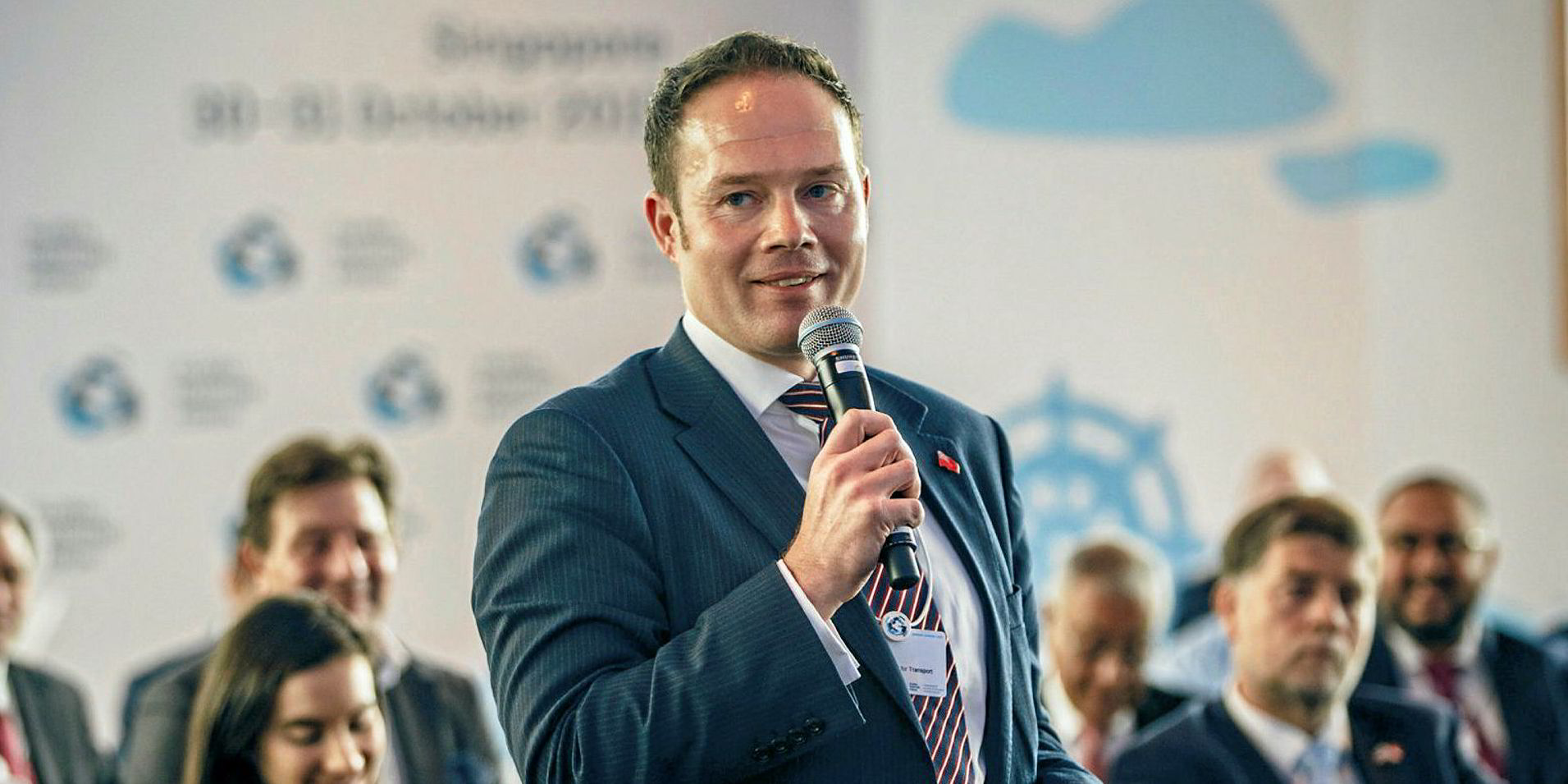
2020 vision
The forum’s 2020 annual meeting will be at the Old Billingsgate market in London. Roger Hargreaves, maritime director of the UK’s department for transport, who helped bring the event to the city said he intends to broaden its stakeholder base.
The Global Maritime Forum has brought a fresh vigour to the regulatory space, but deep contradictions for the industry remain. While the participants were discussing decarbonisation of ship fuel, there was no mention of the carbon fuels shipping carries, which make up 40% of its total cargo.
The Singapore venue for the forum also carried its own irony. Held in the Flower Dome of the Gardens by the Bay complex, it is an entirely artificial recreation of the natural world set on land reclaimed from the sea.
It was Joni Mitchell who sung in her environmental anthem Big Yellow Taxi about a "paved paradise" and taking all the trees and putting them in a tree museum.
Shipping’s stakeholders need to understand, that in the decades ahead, green shipping inevitably will be about more than just cutting greenhouse gas emissions.
